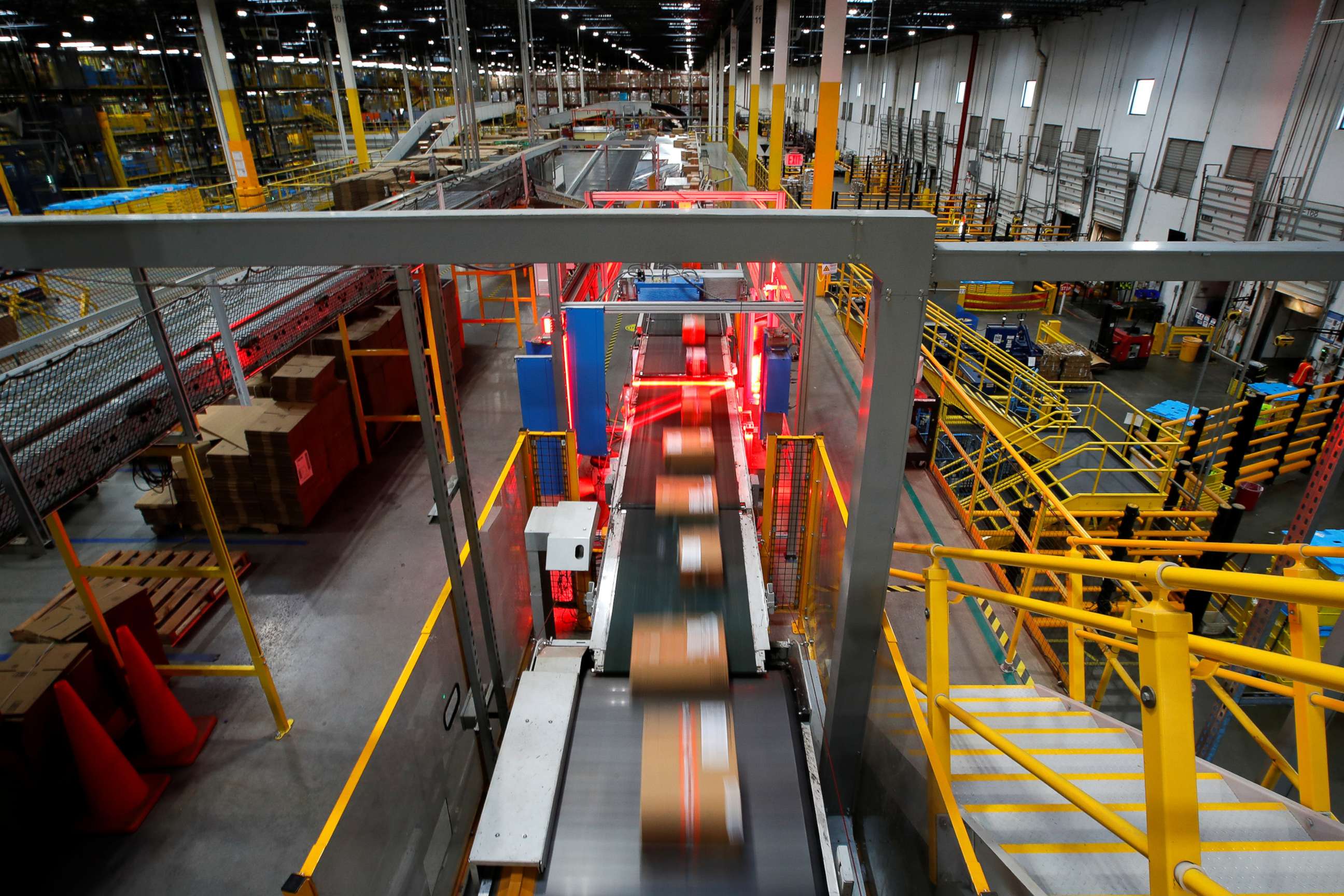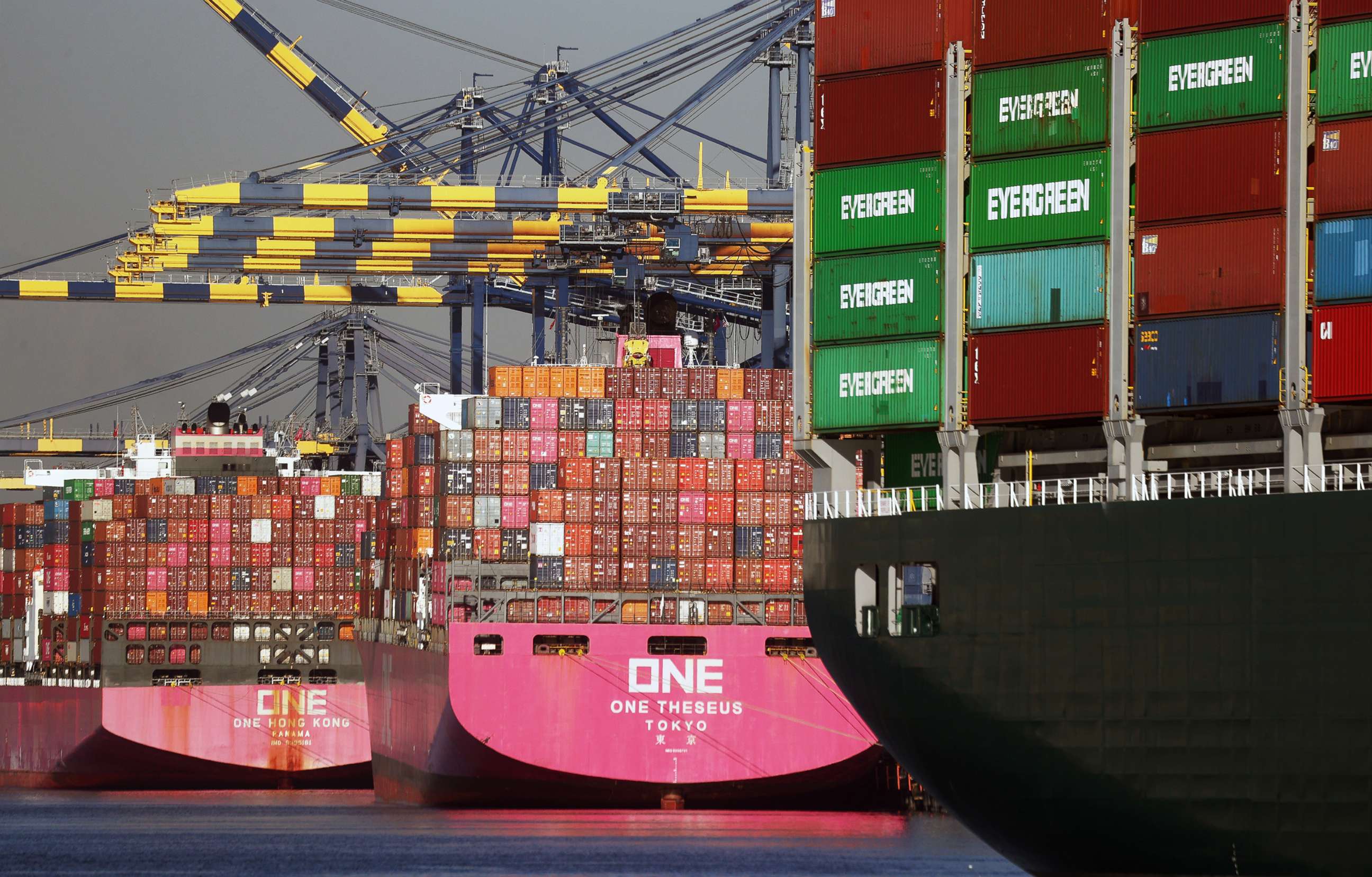FTC launching probe into supply chain disruptions, orders documents from Amazon, Walmart and more big retailers
Walmart's CEO said shelves are stocked because of plans that started a year ago.
The Federal Trade Commission is launching a probe into ongoing supply chain disruptions, and has ordered nine large retailers -- including Amazon and Walmart -- to provide detailed information on factors disrupting their ability to obtain, transport and distribute their products.
The FTC study comes as economists blame supply chain issues in large part for the supply-demand imbalances contributing to inflation, as consumer prices rose at their fastest rate in decades last month.
The FTC said it is issuing the orders through Section 6(b) of the FTC Act, which authorizes the commission to conduct studies even without specific law enforcement purposes. The orders also seek the companies to disclose the impacts these disruptions are having in terms of delayed and canceled orders, increased costs and prices, steps they are taking to alleviate disruptions and more.

The orders are being sent to Walmart, Amazon, Kroger, C&S Wholesale Grocers, Associated Wholesale Grocers, McLane Co, Procter & Gamble, Tyson Foods and Kraft Heinz, the FTC said.
"Supply chain disruptions are upending the provision and delivery of a wide array of goods, ranging from computer chips and medicines to meat and lumber," FTC Chair Lina Khan said in a statement Monday. "I am hopeful the FTC’s new 6(b) study will shed light on market conditions and business practices that may have worsened these disruptions or led to asymmetric effects."
"The FTC has a long history of pursuing market studies to deepen our understanding of economic conditions and business conduct, and we should continue to make nimble and timely use of these information-gathering tools and authorities," Khan added.
The commission said the study will also examine whether supply chain disruptions are leading to specific bottlenecks, shortages, anticompetitive practices, or contributing to rising consumer prices.
As part of the study, the FTC is asking the companies to provide internal documents related to the supply chain disruptions. This includes strategies related to supply chains, costs, profit margins and sales volumes and more. The commission is also soliciting voluntary comments from retailers, consumer goods suppliers, wholesalers and consumers on how supply chain issues are impacting competition.

Economists have pointed to the pandemic-disrupted supply chain as a major contributor to the inflation consumers are seeing now. The Labor Department said earlier this month that consumer prices surged at their fastest rate in more than three decades, reporting a 6.2% jump over the last 12 months in its consumer price index.
Despite the dismal headlines surrounding the global supply chain, and the struggles of major retailers to find staff, many large U.S. retailers have reported that they are finding ways to still bring products to shelves in time for the holiday shopping season.
In an interview with ABC News' "Good Morning America" on Tuesday, Walmart's CEO John Furman said they had just learned about the FTC probe, but the ability to stock shelves was due to a lot of planning ahead.
"A lot of what you see in stores and online, all the products and what's available, these are the results of plans, in most cases, that started over a year ago," Furman told "GMA."
"Our merchants work about 12 months out to determine what they think the trends are, what people will be looking for," he added. "And we're proud of our inventory position at this point."





